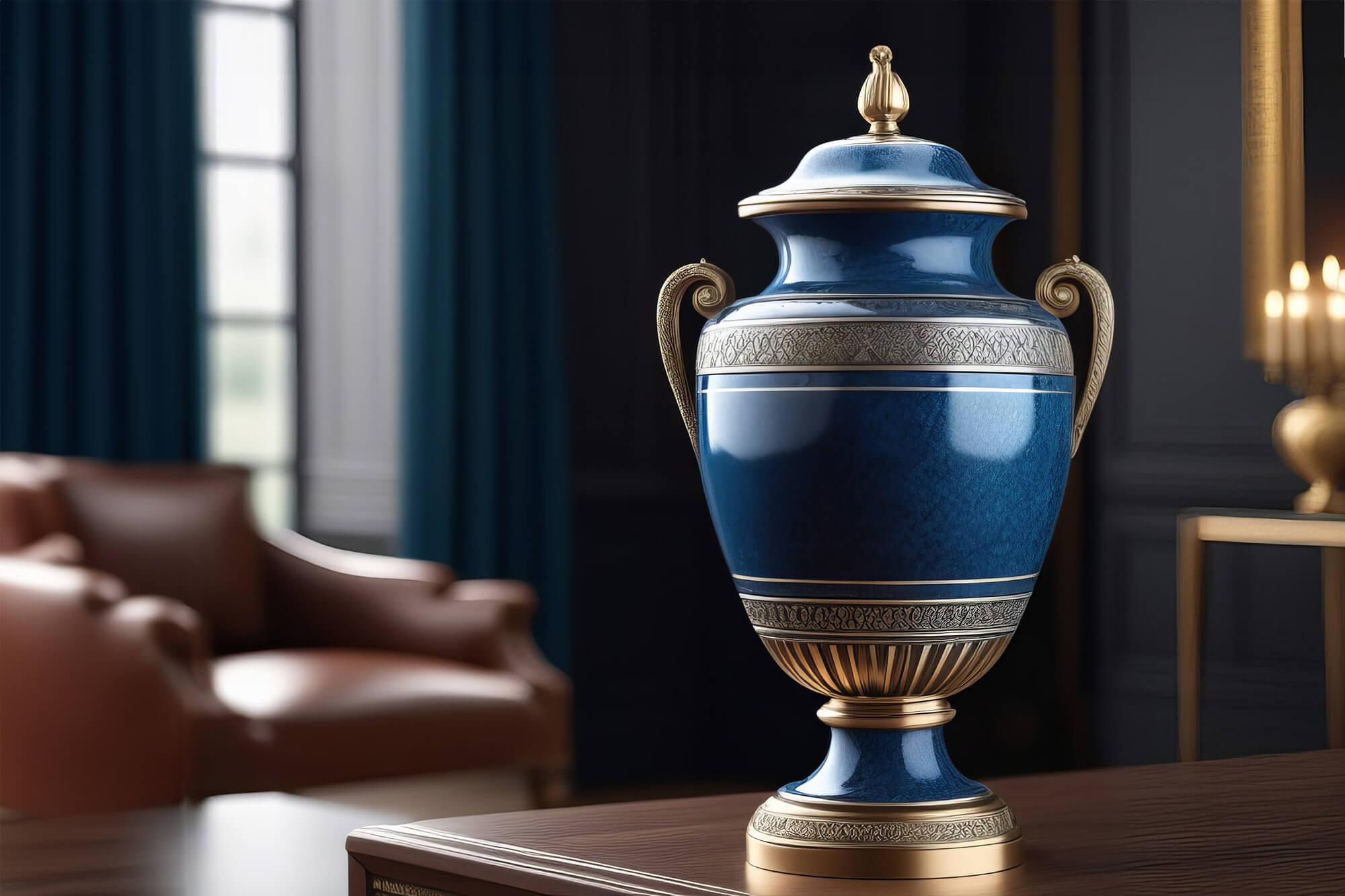“How does cremation work?” And Other Frequently Asked Questions
General Cremation Questions
How long does a cremation take?
The cremation can take anywhere from an hour and a half to several hours depending on your loved one’s size.
What does direct cremation mean?
Direct cremation, also called a simple cremation, typically means there is no embalming, funeral, or viewing prior to the cremation. Your loved one is placed gently into their alternative container (cremation container) and inserted into what we call a retort or crematory. The direct cremation also includes the cremation and processing your loved ones ashes and placing them into an urn.
How much does cremation cost?
Please refer to our General Price List or give us a call at 760-804-3323 or 323-644-3323.
What is an alternative cremation container?
Alternative containers are also known as green caskets, cremation containers, or by the industry term of CB1. The alternative container resembles a 6-foot long cardboard casket that is cremated along with the individual. It is required by law for your loved one to be placed into a rigid and combustible container prior to cremation.
Why is flame cremation considered to be a greener alternative to traditional burial?
Anubis provides an eco-friendly, greener alternative to traditional funeral practices with a lower carbon footprint to honor your loved one’s legacy. Our facility was designed using an existing building to follow green design principles, to reduce emissions, and to improve quality of work environment for our staff. Our water-based cremation offers a lower carbon footprint than traditional funeral practices and our flame-based cremation uses a custom, state-of-the-art design to exceed the latest California emissions requirements.
Flame cremation is a greener alternative to traditional burial as chemicals present within your loved ones body at the time of death and embalming chemicals are not transported into the environment from their final resting place. Cremation avoids the use of land for cemeteries that could be used for wildlife habitat, growing food, or other purposes. There are other aspects of traditional burial from the production of caskets to the use of large amounts of reinforced concrete (which has a high carbon footprint and prevents water from percolating into the ground) in traditional full-size burial vaults that may also cause an environmental impact.
What is a witness cremation or witness water cremation?
A witness cremation or witness water cremation allows the family to view the insertion of their loved one into either chamber for a duration of about 5 to 10 minutes. With flame-based witness cremations, you’re encouraged to enjoy the day with family in Palm Springs and we will have your loved one’s ashes ready for you to pick-up by the end of the same day. For water-based cremations, your loved one’s ashes will be ready for you to pick-up the next day in Palm Springs. For witness cremations outside of Palm Springs, please call us at 760-804-3323 or 323-644-3323 to discuss your specific needs.
What if we want a witness cremation or viewing, but can’t make it in person?
Anubis offers in-person witness cremations and viewings at our modern facility and if that doesn’t work for your family or some of your family, we also offer virtual viewing and witness cremation options. With the virtual option, you’re able to choose a song of remembrance to be played during the process. Please call us at 760-804-3323 or 323-644-3323 for details and to discuss your specific needs.
How is a viewing different from a witness cremation or witness water cremation?
A viewing is more like an end-of-life celebration and isn’t typically held in front of the cremation equipment. Viewings are typically held in a serene, chapel-like setting where family and friends can gather to celebrate their loved ones life. Viewings take place before the cremation or water cremation, whereas, witness cremations take place during the beginning and initial moments of the cremation.
Water Cremation
What is hydrolysis?
Hydrolosis (alkaline hydrolosis), otherwise known as flameless cremation, aquamation, resomation, green cremation, and what we like to refer to as water cremation, is a greener, gentler alternative to traditional, flame-based cremation.
How does hydrolysis work?
Your loved one is in their natural state and is individually placed into a stainless steel chamber. A combination of about 95% water and 5% alkali is heated and slowly circulated throughout the chamber. The entire water cremation process can take anywhere from 6 to 8 hours. At the end of the process, the remaining bone fragments are dried and broken down into a powdery form and returned to your family as cremated remains, or ashes.
Why is water cremation considered to be a greener alternative to traditional cremation?
Anubis provides an eco-friendly, greener alternative to traditional funeral practices with a lower carbon footprint to honor your loved one’s legacy. Our facility was designed using an existing building to follow green design principles, to reduce emissions, and to improve quality of work environment for our staff. Our water-based cremation offers a lower carbon footprint than traditional funeral practices and our flame-based cremation uses a custom, state-of-the-art design to exceed the latest California emissions requirements.
Water cremation uses about 85% less energy than traditional cremation. A minimal amount of energy is needed to heat the water for our process and there are also energy requirements associated with water and wastewater treatment at regional treatment facilities. Water cremation also sterilizes or neutralizes drugs, chemicals (such as from chemotherapy), and other toxins in the body of your loved one at the time of death so that these chemicals are not released into the environment.
What are other names for water-based cremation?
Water-based cremation is also called:
- Alkaline hydrolosis
- Aquamation
- Biocremation
- Flameless cremation
- Green cremation
- Hydrolosis
- Resomation
- Water cremation
Why should I choose water-based cremation?
Our clients choose water-based cremation for many reasons, including:
- Cultural or religious preferences
- Flameless cremation is gentler on the body
- One last chance to contribute to a greener environment
- Spiritual element of water – similar to being returned to the womb
- Personal or family preference
Please call us at 760-804 -3323 or 323-644-3323 to discuss if which cremation option is best for your needs.
How much water does hydrolosis use?
Water-based cremation uses 350 to 400 gallons of water for each decedent including the rinse water used to rinse the equipment. This is equivalent to the amount of water that is used in a 70-minute shower.
Each day, Californians use about 85 gallons of water per person and the average person in the United States uses between 80 to 100 gallons of water per day. The amount of water used in water-based cremation is less than what most people use in five days while living.
How does water-based cremation work?
Alkaline hydrolosis, or water-based cremation, uses a combination of 95% water, 5% alakli (high pH material), 300°F heat, and pressure to break down organic matter over about eight hours. The formula is gently circulated with hot water to break down organic matter over about six to eight hours.
What is alkali?
An alkaline material, or alkali, is basic (high pH) material or the opposite of an acid, which have a low pH. Examples of alkali includes potassium hydroxide or sodium hydroxide, which are commonly found in household items like toothpaste, cleaners, and body-care products.
What happens to the water in water-based cremation?
The alkaline hydrolosis process destroys viruses, diseases, etc. and neutralizes drugs, embalming fluids, or chemotherapy drugs. Sterile water consisting of amino acids, nutrients, and soaps is discharged to the sewer system and treated at wastewater treatment plant.
Do I get ashes back if we use water-based cremation for my loved on?
During water-based cremation, organic matter is broken down leaving partially intact bones, which are processed into a powdery substance and returned to families as cremations. The cremains are a whiter, powdery substance as compared to the grayish color of traditional ashes. Additionally, alkaline hydrolysis equipment is stainless steel and completely sterile so there is no commingling of cremains like the possibility with flame-based cremation.
Other Questions
How many death certificates do we need?
Please refer to Anubis’ vital forms which will give you examples of the types of institutions that require death certificates. Or, give us a call during business hours at 760-804-3323 or 323-644-3323 and ask one of our professionals for input on your family’s specific situation. We generally recommend not over-ordering death certificates as we can obtain additional copies for your family within a one-year period and some institutions will now accept copies.
What makes Anubis a Green or Eco-Friendly funeral home?
Anubis offers eco-friendly water-based cremation, which has a lower carbon footprint and uses about 85% less fossil fuels than traditional cremation and funeral practices. Anubis’ water cremation is powered by 100% renewable energy. Anubis’ flame-based cremation uses a custom, state-of-the-art design to exceed the latest California emissions requirements. Both types of cremation are greener alternatives to traditional burial and our process for cremation and burial avoids the use of embalming chemicals.
Additionally, our modern facility in Palm Springs was designed using an existing building to follow green design principles, to reduce emissions, and to improve quality of work environment for our staff. Anubis’ landscape consists of native and adapted low-water use plants that provide habitat and beauty while using less water than other types of plants. We also use a smart irrigation system to conserve even more water.
What is the historical origin of Anubis?
Anubis was the Egyptian god who ruled over funerary practices and care of the dead and was the deity of cemeteries and embalming and protector of graves. The ancient Egyptian culture paid homage to their dead similarly to how we at Anubis currently attend to and take care of the deceased and their families.

